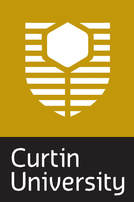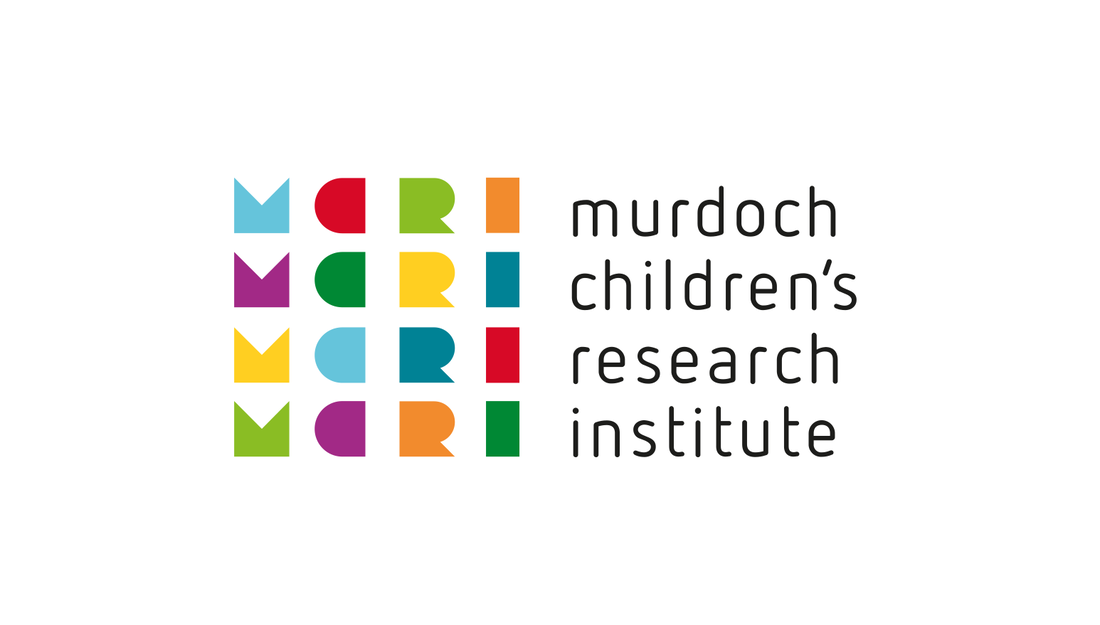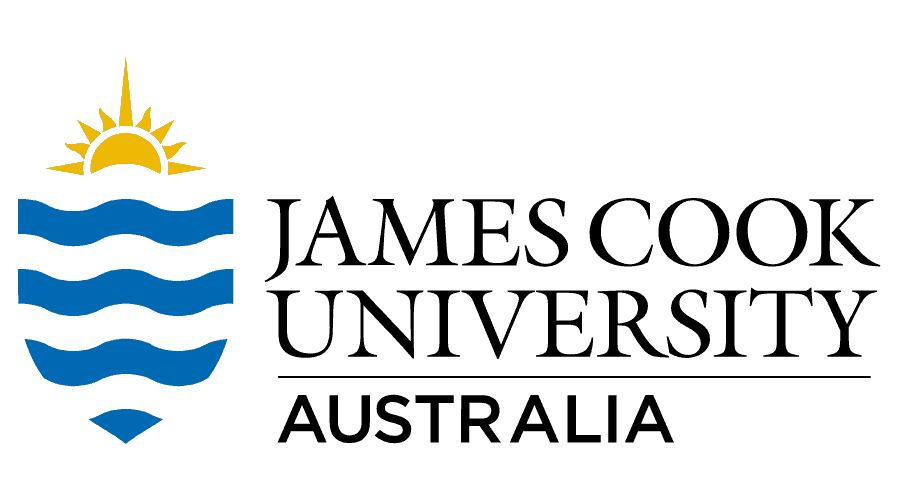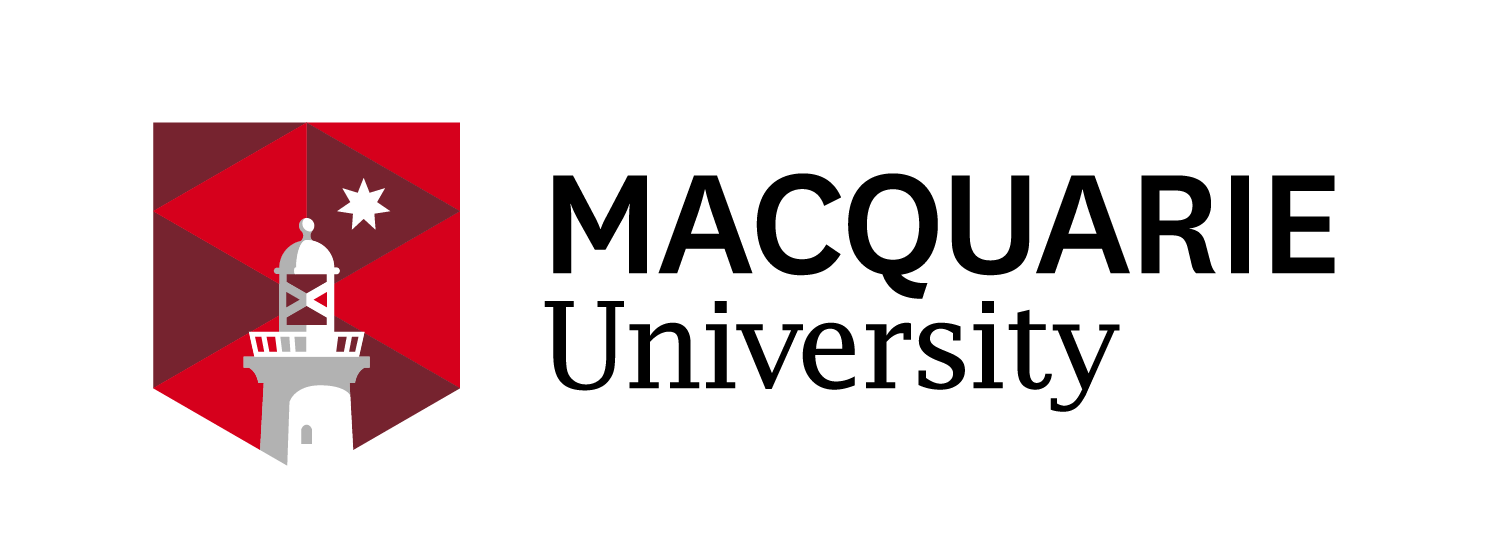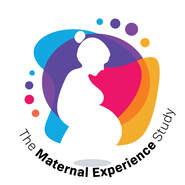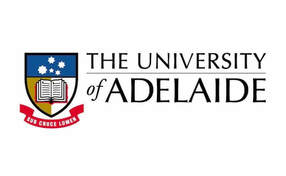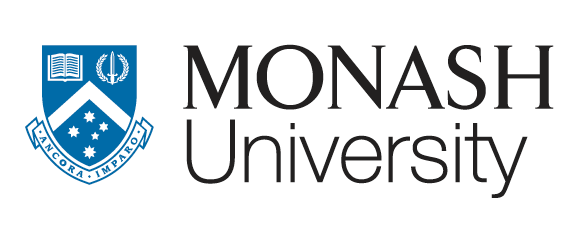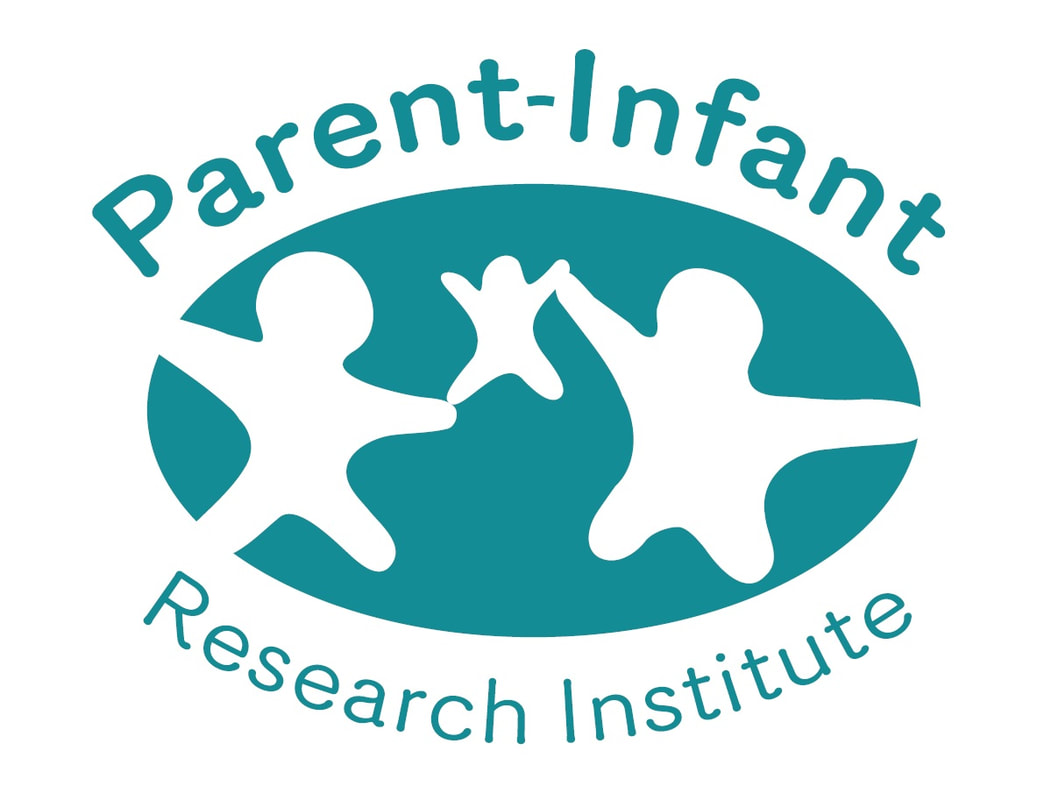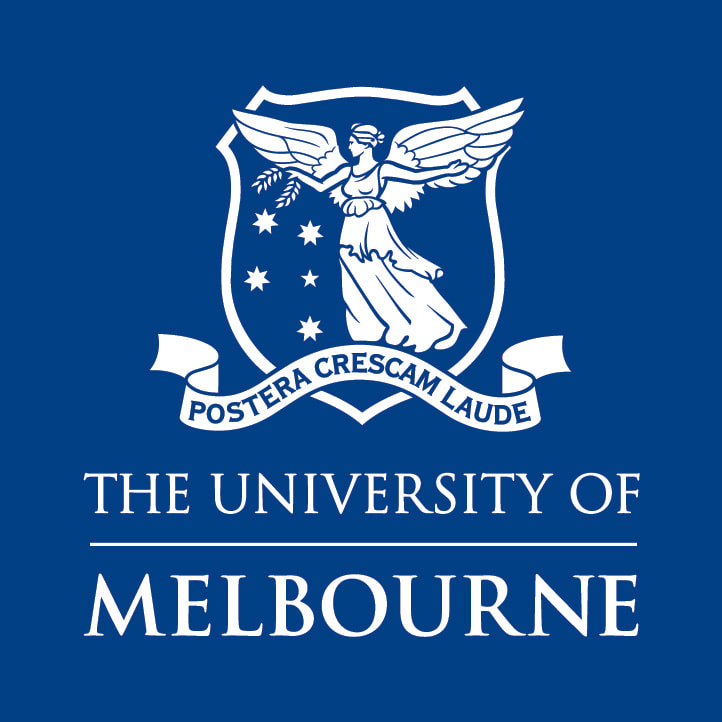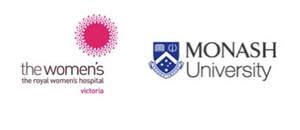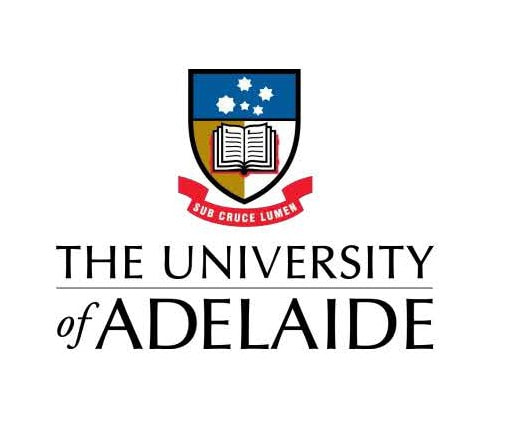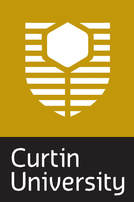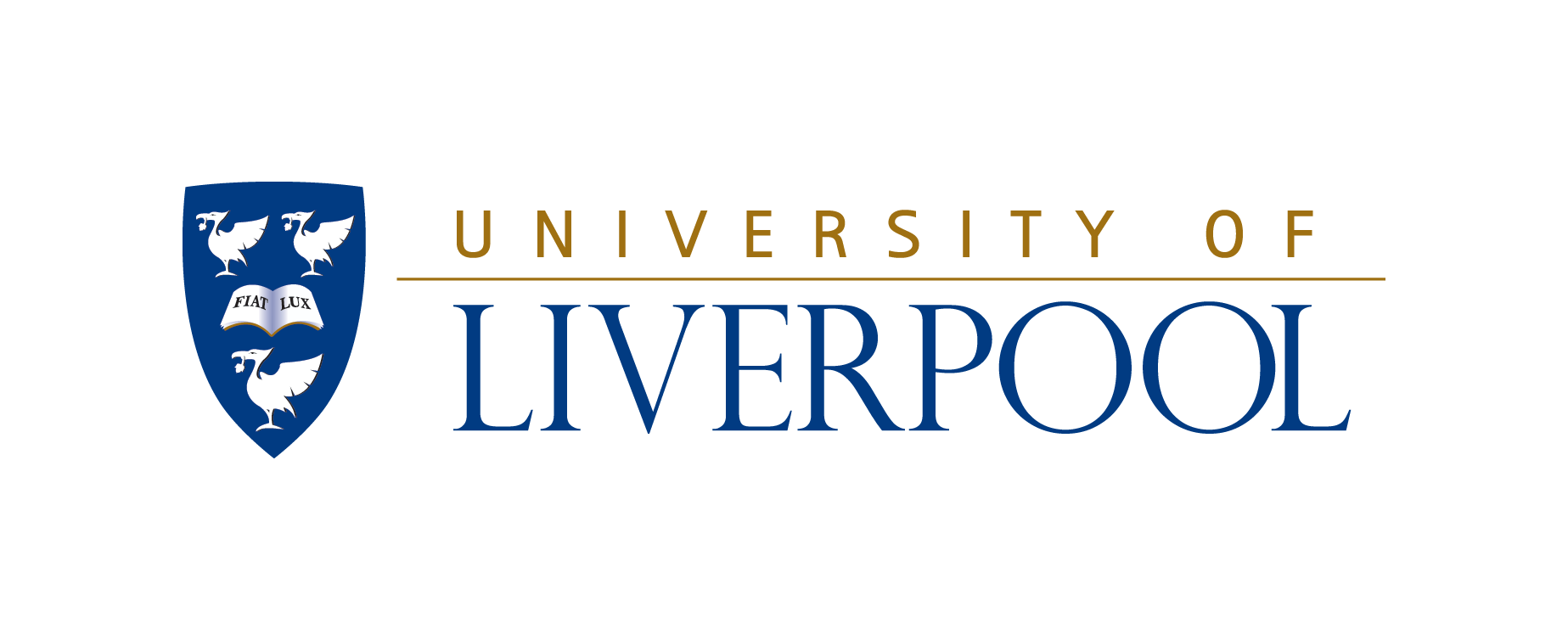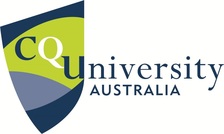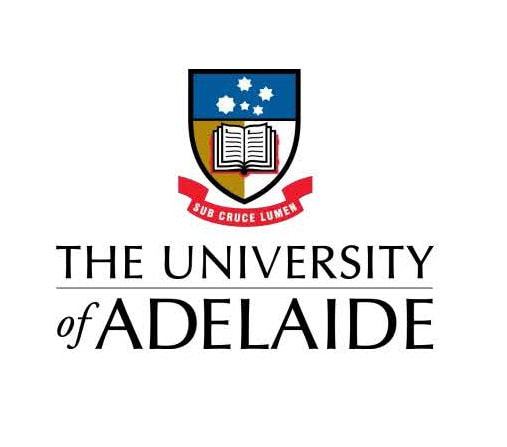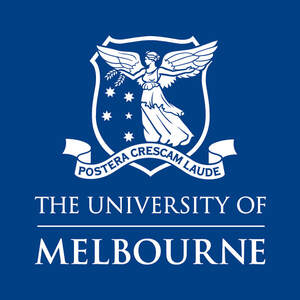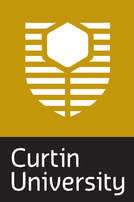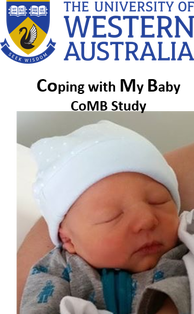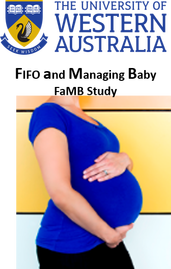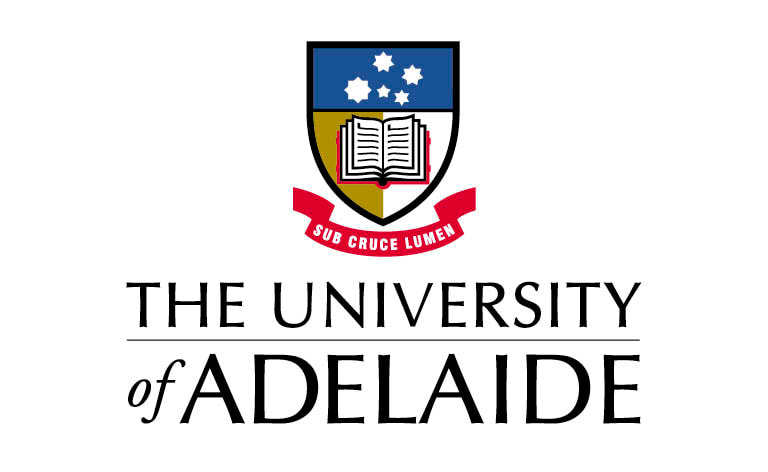Participate in research
The Antenatal & Postnatal Psychology Network (APPN) is committed to supporting ongoing research into perinatal mental health. To this end, we provide a platform on our website for researchers to post information about their studies. If you are interested in participating in a study listed below, click on the relevant links. Participation in research, and the findings that result from research, greatly benefit practitioners in the perinatal mental health field to better understand how to help the women, men and couples with whom they work.
Read research disclaimer
Thank you for your consideration.
Research studies
Participants required:
Phase 1 - Health care providers working with fathers, mothers and birthing parents in the perinatal period (pregnancy to 1 year post-birth)
Phase 2 - All fathers in the perinatal period (pregnancy to 1 year post-birth) PLUS all mothers and birthing parents in the perinatal period (pregnancy to 1 year post-birth) whose child's father/father figure is a first time father
Phase 1 - Health care providers working with fathers, mothers and birthing parents in the perinatal period (pregnancy to 1 year post-birth)
Phase 2 - All fathers in the perinatal period (pregnancy to 1 year post-birth) PLUS all mothers and birthing parents in the perinatal period (pregnancy to 1 year post-birth) whose child's father/father figure is a first time father
A formative evaluation of a peer-facilitated, online, perinatal education and support program for first-time Australian fathers referred through primary health care providers
|
Listed 19th September 2023 |
We are conducting research to gather participants' views on first-time fathers’ needs and inclusion in perinatal care and programs, and about a proposed online perinatal program for first-time fathers that is run by fathers.
Our project has two main phases (both open for recruitment): Phase 1 (closing 30 Nov 2023) - you can participate in this study if you are a health care provider working with fathers, mothers and birthing parents in the perinatal period (pregnancy to 1-year post-birth). You are invited to complete a national 15–20-minute anonymous online survey. If you work in Western Australia and Queensland, you are also invited to a 30–40-minute semi-structured online interview. Phase 2 (closing 30 April 2024) - you can participate in this study if you are a father in the perinatal period (pregnancy to 1-year post-birth). You can also participate if you are a mother or birthing parent in the perinatal period (pregnancy to 1-year post-birth) and your child's father/father figure is a first-time father. You are invited to complete a national 15–20-minute anonymous online survey. If you live in Western Australia and Queensland, you are also invited to a 40–50-minute semi-structured online interview. |
Health care providers can access project information here: https://curtin.au1.qualtrics.com/jfe/form/SV_d1iFwnLlKcXw9wO
Fathers can access project information here: https://curtin.au1.qualtrics.com/jfe/form/SV_8BKbUQuMfbqFgX4 Mothers and birthing parents can access project information here: https://curtin.au1.qualtrics.com/jfe/form/SV_3UGi3QCl5i2uayO Thank you for considering being a part of our research study. |
Participants required: Health professionals working with children who were admitted to the NICU
The Bundle for Kids Study
|
Listed 26th July 2023 |
Researchers at Murdoch Children’s Research Institute are looking for professionals working with infants or children previously admitted to NICU. We want your thoughts on the most critical priorities and issues regarding early interventions. This will help us develop and test intervention strategies for high-risk children with potential developmental problems.
You can participate in this study if you work with infants or children previously admitted to a NICU for the following reasons: • prematurity • special health needs or dependence on technology • requiring an operation within the first month of life • anticipated early death • health concerns in the setting of family issues |
Are you interested in helping us understand how best to support these infants and their families during early childhood?
What’s involved? • we will email you links to complete two online surveys • the surveys will take approximately 20 – 30 minutes • links for the surveys will be sent in July and September of 2023 • each survey will be able to be completed at any time over the week following the link being sent Complete your details via https://redcap.link/bundle_clinicians to register your interest in the study or contact the study team directly on [email protected] Thank you for your consideration. |
Participants required: Women who are at least 20 weeks pregnant, aged 18 years or over, and currently living in Australia or New Zealand.
The MotherCare Project
|
Listed 14th July 2023 |
Are you expecting a new baby in the next few months? Are you interested in taking better care of yourself as a new mum?
Researchers at The University of Queensland are inviting mums-to-be to trial a new set of online resources designed to support their psychological wellbeing and their relationship with their new baby. |
What does participation involve?
Participants complete three anonymous online surveys (one now, one 6 weeks after your baby’s due date, and one 4 months after your baby’s due date). The surveys will ask about your own coping, childbirth, and health and lifestyle experiences. All participants will receive free-of-charge information and guided activities intended to promote your wellbeing, in the form of a package of online resources. You will be randomly selected to either receive access to the resources straight away, or after completing the final survey (4 months after your baby’s due date). If you are keen to participate, or to find out more, please visit us at: https://exp.psy.uq.edu.au/mothercare/ Thank you for your consideration. |
Participants required: Women currently pregnant with their first child, residing in Australia, over 18 years of age, and English speaking.
Factors influencing women's choice of birthing method
|
Listed 17th March 2023 |
What influences a woman’s decision to have an elective caesarean section or vaginal birth?
Would you like to share your attitudes, experiences and preferences towards these birthing methods? We are interested in understanding Australian women’s preferences for their birthing method, and the reasons for these preferences and decisions. This research may inform women, and professionals supporting women to make clinically informed decisions regarding their birth. |
If you are interested, here is the link to the questionnaire where there will be more in-depth information regarding the study.
Then if you choose to participate, it will prompt you to the questionnaire. https://acap.au1.qualtrics.com/jfe/form/SV_3mF4ILKInGgTPj8 Thank you for your consideration. |
Participants required: Mothers 18 years of age or over; English speaking; reside in Australia; have recently had a child who is not over 12 months of age
Investigating the impacts of climate change on maternal functioning and postpartum mental health
|
Listed 30th January 2023 |
You are invited to take part in a research project investigating the distress experienced by some mothers due to climate change or extreme weather events. This study is being conducted by Madelyn Pardon, James Dimmock (James Cook University, AUS), Jennifer Barkin, Bonzo Reddick and Anthony Kondracki (Mercer University, USA).
You are eligible to participate if: - You are 18 years of age or over - You are English speaking - You reside in Australia - You have recently had a child who is not over 12 months of age |
The study is comprised of a 20-minute online anonymous survey and a 60-minute focus group session via Microsoft teams with other eligible participants (up to 20 participants per group session).
Those who are eligible and take part in the study will receive an electronic US$25 Amazon gift card (~AUS$40) funded by the Georgia Department of Public Health, Houston County Division, and Mercer University Georgia, USA. To view the study information sheet or for more information click the following link: https://drive.google.com/file/d/143cJifnTOA7tkuuRmDhcA4j_w0tmzbvn/view?usp=share_link Contact Madelyn to indicate your interest (E: [email protected] ; P: (07) 4781 6471) |
Participants required: First-time non-birthing parents (fathers, step parents, LGBTQI+, adoptive, surrogate or kinship families; child under 3 or pregnant
Stress and Negative-Self Evaluation in Non-Birthing Parents
|
Listed 5th November 2022 |
The transition to parenthood is a rewarding transformation; the birth and raising of a child is a meaningful and joyous time. However, it can also pose unique challenges to the mental health of some parents. As well as the substantial number of mothers and fathers diagnosed with postnatal depression, there are also many parents who experience postnatal distress. Evidence has shown that guilt and shame are linked to poor mental health in some new mothers, including postnatal distress. This study aims to extend this research by exploring the relationships between guilt, shame, parental stress, age and maladaptive perfectionism in first-time non-birthing parents.
Emma Reeves is conducting this research toward a Bachelor of Psychological Science (Honours) degree at the Australian College of Applied Professions, under the supervision of Micheal Weston, a lecturer in the Discipline of Psychological Sciences. |
To participate in this research, you need to be
a) aged 18 years and over b) a parent who did not give birth (can also be expecting a child) c) a first-time parent, where the child is under 3 years of age d) actively co-parenting (cohabitation or active relationship is not essential) e) understand English well enough to complete a survey written in English If you meet these criteria and are interested in taking part, you will be asked to complete a 20 minute survey consisting of 99 questions relating to demographics, general feelings and emotions, experiences of stress, guilt, shame, and attitudes towards the self, others and performance. In this research, we do not collect your name or any other information that could identify you. Personal details that are entered for the draw are collected separately to survey data, securely stored by IT at ACAP. Please be aware that we have made every effort to protect the security of your data and that you cannot be identified from any of your responses. Survey: https://acap.au1.qualtrics.com/jfe/form/SV_daIKzOxRDYHluAK Facebook page: https://www.facebook.com/Stress-and-negative-self-evaluation-in-non-birthing-parents-Research-111504594852797 |
Participants required: Pregnant women who are 25-32-weeks pregnant with their first child, currently living in Australia
Resilient New Mums
|
Listed 24th May 2022 |
Researchers at Macquarie University are conducting a study on resilience in the transition to parenthood.
This study aims to explore resilient thinking in pregnancy and how it relates to resilience after the baby is born. Resilience describes a person’s capacity to “bounce back” from stressful events. Not much is known about how resilience develops over the period when women become parents for the first time. This research aims to help us understand more about this process. We hope this research will help with future development of programs to help mums strengthen their resilience during pregnancy. |
If you decide to participate, you will be asked to complete a series of online surveys:
• An initial survey when you first consent, which takes about 20 minutes • 7 short (2-minute) daily mini surveys (1 survey per day for one week), when prompted via a smartphone app • Another survey in late pregnancy, which takes about 15 minutes • A follow-up survey 1 month after your expected due date, which takes about 15 minutes We are recruiting until 30 June 2022. Participants who complete all surveys can enter a draw to win one of five $200 online gift vouchers. For more information about the study and/or to participate, please visit: https://redcap.mq.edu.au/surveys/?s=EMLLAYHWY7 Please also feel free to email me on [email protected] for further information. |
Participants required: Women 18 years or older, currently residing in Australia, who are pregnant and/or a mother of an infant under 24 months old
Perinatal Wellbeing Study
|
Listed 14th February 2022 |
The perinatal period (encompassing pregnancy and 24 months postpartum) is a demanding time of adjustment. This online study aims to promote perinatal wellbeing by exploring the effect of a reflective writing task on the wellbeing of pregnant mothers and mothers of infants.
You will be asked to reflect on and write about the challenges involved in the perinatal period and complete some short questionnaires relating to your demographics, feelings, thoughts and intentions. The online study will take approximately 30-45 minutes and participation is entirely voluntary and anonymous. |
For more information about the study and/or to participate, please visit this link: https://rmit.au1.qualtrics.com/jfe/form/SV_88KULVaZdxdZcma
Please also feel free to email [email protected] for a copy of the link and/or further information. As a thank you for your involvement, you can choose to enter a draw to win one of four $50 gift cards. |
Participants required: Mothers with postpartum depression or suspected postpartum depression (BRISBANE, GOLD COAST)
Exercise for Mothers with Clinical Postpartum Depression (PPD): A Feasibility Study
|
Listed 18th September 2021 |
Researchers from Griffith University are investigating the acceptability and outcome of an exercise intervention using a telehealth app for mothers with Postpartum Depression (PPD).
We are looking for individuals who are in the postpartum period, have PPD or are able to seek diagnosis, and would like to participate in a free, convenient home-based, and professionally led exercise program. Evidence indicates that exercise has several health benefits for mothers, and in particular mothers with post-partum depression. However, there are many valid reasons why mothers with PPD do not participate in enough exercise, and are therefore unlikely to experience the great number of physical and mental health benefits that come with exercising. |
If you are able to attend Griffith University, Gold Coast on two occasions and would like to participate, please click the link https://is.gd/paandppdfeasibility.
Please be mindful of maintain your privacy and the privacy of others when interacting with this post. If you have any further questions, please contact the research team at [email protected] or send a direct message. Thank you for your interest. Jemma Turner |
Participants required: Pregnant women living in Australia
Maternal Experience Study
|
Listed 1st September 2021 |
Are you currently pregnant and living in Australia? We are interested in your experience of pregnancy and the post-partum period.
A team of clinicians and University of Tasmania researchers have developed a comprehensive set of surveys to investigate factors influencing the maternal health and wellbeing of women during pregnancy and up to 12 months post-delivery. |
If you are interested in participating, more information and the consent form can be found at our website: https://redcap.utas.edu.au/surveys/?s=XPE8MMDKFD
Participants, including those who decide not to answer some questions of the study, will be offered the opportunity to enter prize draws as a token of gratitude for their time and input into the study. There are thirty Coles/Myer gift vouchers valued at $50, ten Coles/Myer gift vouchers valued at $100 AND one Coles/Myer gift voucher valued at $500 in the prize draws (i.e. there are forty-one chances to win a voucher!). Thank you for your interest. |
Participants required: 1) Culturally and Linguistically Diverse (CALD) men with experience of perinatal death. 2) Healthcare professionals who have worked with CALD men following perinatal death. 3) Community Leaders from a CALD community
Culturally and Linguistically Diverse (CALD) men’s experiences of perinatal death in Australia
|
Listed 17th May 2021 |
Men from culturally diverse backgrounds may have unique lived experiences of perinatal death. These men have the right to culturally competent care and effective support.
This study aims to explore culturally and linguistically diverse (CALD) men's experiences following perinatal death, and to identify specific support needs and barriers to support that CALD men face following perinatal death. This research may help to inform support organisations and healthcare professionals about how to best provide support to CALD men following perinatal death. This study aims to explore this topic from the perspective of CALD men, leaders in their communities, and healthcare professionals who provide support and care following perinatal death. Study flyer can be found here. |
Participation in this project is completely voluntary. If you agree to participate, you can withdraw from the study at any time.
Participants will receive a $50 shopping voucher as a thank you for your time. If this study applies to you, please contact us to arrange an interview. In the interview, we will ask you questions about grief following perinatal loss, for yourself or for men in your community / healthcare practice. The interview will last approximately 60 minutes. You are eligible to participate in this research if: • You are a CALD man with experience of perinatal loss in Australia ( perinatal death is defined as 20 week’s gestation to 28 days after a live birth) • Your experience of perinatal loss occurred in Australia in the last 10 years • Your experience of perinatal loss did not occur within the last 6 months (to minimise distress) • You are over 18 years of age OR • You are a leader within a CALD community OR • You are a healthcare professional with experience of working with a CALD man with experience of perinatal loss Please contact Thom Pearson [email protected] or call Dr. Clemence Due on 08 8313 6096 |
Participants required: Parents or primary care-givers of toddlers (Melbourne)
A Music Intervention to Support Parent-Toddler Attachment
|
Listed 12th May 2021 |
Are you a parent or primary caregiver of a 2- or 3-year-old toddler?
Do you feel that you experience difficulties in your relationship with your toddler? Are you interested in improving your relationship with your toddler by making music together? We are interested in exploring how a music-based intervention supports the quality of parent- and caregiver-toddler relationships and toddler and parent/caregiver mental health. The 10-session intervention will be completed with a provisional psychologist. Interested participants will complete two questionnaires to determine eligibility. No prior musical experience is required to participate in this research. Study flyer can be found here. |
You (parent or caregiver) are eligible to participate in this research if:
• You believe you have some difficulties with attachment with your 2 or 3-year-old toddler • You have no neurodevelopmental disorders, current suicide ideation and/or severe mental health issues • Your child has no diagnosed mental health issues (including attachment disorder), neurodevelopmental disorders (e.g., autism, Fragile X Syndrome) or global developmental delay • Yourself and/or your child are not currently experiencing significant risks to your personal safety, such as domestic violence and/or abuse • You are fluent in the English language For more information or if you are interested in participating in this research, please contact Ms Lalitha Newman by email at [email protected] or by phone on 0439 503 640. Thank you! |
Participants required: Pregnant women with a family history of autism, ADHD or intellectual disability.
The CUB Study (Communicating and understanding your baby)
|
Listed 7th September 2020 |
The CUB Study is an important, new clinical trial at La Trobe University, Bundoora, for pregnant women with a family history of autism, ADHD or Intellectual disability. We’d love to hear from pregnant women who:
• Have a family history of Autism, ADHD or intellectual disability • Live in the Melbourne area and are willing to visit La Trobe University (Bundoora) 4 times in 2 years, with possible additional in-home visits if randomised into the treatment group • Speak English as the main language at home • Are pregnant with a single baby (eg. not pregnant with twins or triplets) The CUB Study is trialing a new program that aims to enhance parents’ support and understanding of their baby’s early social and language developments. Families participate until baby's 2nd birthday. |
This is a randomised clinical trial, which means that half of the participants will be assigned to the home-based therapy group. This commences with an antenatal workshop, and then moves to home-based visits when baby is 4 weeks of age. It will involve regular visits from an allied health professional, supporting parents through a structured program with a focus on their baby's communication and social development. The other half of the participants will be in the developmental monitoring group, with child assessments taking place at La Trobe University. All participants will receive developmental monitoring over the two year period of participation.
If you would like to participate in this study and to learn more, please contact the study Coordinator, Alexandra Aulich, [email protected]. You can also visit the website: www.latrobe.edu.au/psychology/research/research-areas/developmental-psychology/CAPTeam/current-studies. Thank you for your interest. |
Participants required: Women up to 30 weeks pregnant who are feeling low
Beating the Blues Before Birth
|
Listed 8th August 2020 |
Pregnant and feeling low?
Join the Beating the Blues before Birth study today! The Parent-Infant Research Institute at Austin Health is conducting a government- supported study to evaluate the benefits of psychological treatment for depression in pregnancy, for both mother and baby. |
YOU WILL RECEIVE:
- Telephone assessment with a psychologist - Discussion of treatment options and support services - Half of the women will also receive 8 free sessions of individual cognitive-behavioural therapy via telehealth You will be asked to complete questionnaires and telephone assessments. These will include questions about your mood, situation and your child development. To participate in this study, please follow this link: https://www.piri.org.au/current-treatment-trials-now-open-for-recruitment/ |
Participants required: First-time mothers
Childbirth experiences and trauma in first-time mothers
|
Listed 23rd June 2020 |
Invitation to first-time mothers to participate in a study looking into the mental health of first-time mothers.
The project aims to look into the beliefs mothers hold about themselves, others and the world and how this impacts the way childbirth is experienced. By gaining a better understanding of individual vulnerability factors and different experiences of childbirth, we hope to put forward some strategies to support first time mothers in the future. We are interested to hear from first-time mothers who: • had a baby more than a month ago • had a pregnancy that was full-term (more than 37 weeks) • older than 18 In order to minimise any potential distress, we ask that you do not participate if you meet any of the following conditions: • You are under 18 years of age • Your baby/babies died during or soon after the birth • Your baby / babies were born before 37 weeks’ gestation |
Data will be collected by an anonymous online survey. The survey will take approximately 20 mins to complete and will ask some general demographic questions about you, as well as your thoughts and beliefs about yourself and others, your recent childbirth experience, and also about potential traumatic events during (or immediately after) the labour and birth.
If you would like to participate, click on or enter the link: https://csufobjbs.au1.qualtrics.com/jfe/form/SV_6DSSjngRPrYi3Ih Please contact members of the research team if you would like further information or to discuss the study before you decide to participate: Student researcher: Danielle de Guara – [email protected] or Supervising researcher: Dr Karl Wiener [email protected] We would really appreciate your involvement into this really important study. Thank you. |
Participants required: Parent of a preterm infant, child, or adolescent who is now 0-18 years of age.
The FAB Study
|
listed 18th June, 2020 |
The FAB Study is taking a much-needed positive approach to understanding the family unit by investigating factors that promote resilience to stress, in families following preterm birth.
|
For more information and to participate in this study, please visit the website (https://exp.psy.uq.edu.au/fab) or contact the study coordinator, Ms. Olivia Yaksich, [email protected].
You can also follow this study on Facebook: https://www.facebook.com/thefabstudy/. Thank you for your interest. |
Participants required: Mothers of children aged between 0-4 years.
Mothers and Social Media
|
Listed 18th June, 2020 |
This research project is being undertaken as part of a Masters study for Melissa Harding, at Queensland University of Technology.
The purpose of this research project is to understand how mothers use social media and what effects social media use can have on mothers. As a mother of a child/ren aged between 0-4 years, you are invited to participate in this research project. |
Participation will involve completing an online survey that involves a short writing task and answering questions about a hypothetical Facebook post and about yourself. The study will take approximately 20 minutes of your time to complete.
Find out more at: https://qutpsych.au1.qualtrics.com/jfe/form/SV_0HvEkToyRrU3V77 Thank you for your interest. |
Participants required: Health practitioners, educators, policy makers, researchers or program managers whose work relates to family or child health and well-being in Australia.
Delphi expert consensus study: Establishing expert consensus about interventions for preventing and ameliorating the impact of Adverse Childhood Experiences.
|
Listed 12th June, 2020 |
Researchers from the University of Melbourne are conducting an online an online Delphi expert consensus study to improve our understanding of the prevention of Adverse Childhood Experiences.
You may be eligible to participate in this study if you: are 18 years or older, and have at least of 5 years’ experience as a health practitioner, educator, policy maker, researcher, or program manager related to family or child health and well-being in Australia. |
The study involves completing three rounds of online surveys to rate a set of intervention programs for adverse childhood experiences.
To participate in this study, please follow the link to the participant information statement and anonymous online questionnaire: https://melbourneuni.au1.qualtrics.com/jfe/form/SV_9zbP0Wu6b5lUrMF This survey should take 40-70 minutes to complete, and can be completed in multiple sittings if you choose. The survey will stay open until Sunday 30 June. If you require more information, please call or email Berhe Sahle at: [email protected] or +61 3 8344 8627 |
Participants required: First-time mothers who are less than 32 weeks pregnant and currently experiencing sleep difficulties.
The Study for Mother-Infant Sleep (SMILE)
|
Listed 14th May 2020 |
Are you currently pregnant and looking to improve your sleep?
You are invited to participate in a research project that evaluates different approaches to improving sleep for first-time mothers who currently experience sleeping difficulties. We would like to hear from women who are: • At least 18 years old. • A first-time mother. • Have difficulty with their sleep. • In 26-32 weeks of a singleton pregnancy (for example, not twin pregnancy). • Able to read and write in English. • Have regular email and internet access. • Have regular access to a smartphone. |
While participating, you will be allocated to 1 of 3 sleep programs and receive either:
1. A new ‘smart’ bassinet designed to help baby’s sleep. 2. Sleep information and strategies via email at 6 different times during pregnancy and after your baby is born. 3. A booklet containing sleep information and sleep hygiene. While participating you will also speak to a researcher on the phone once during pregnancy and twice after your baby is born, and answer 5 sets of online questionnaires. The programs are completely free. To thank you for your time and effort, we will give you up to $60 in gift vouchers. For information and sign up, click on the following link: https://redcap.cdms.org.au/surveys/?s=MN8MX3RPDY If you have any questions, please email our research team at [email protected], or call +61 451 670 036. This project has been approved by the Royal Women’s Hospital Human Research Ethics Committee: 19/17 Thank you for your interest. |
Participants required: Women and/or their partners who have tried unsuccessfully to conceive for at least 12 months after having had a successful pregnancy/pregnancies
Experiences of Secondary Infertility: Emotions, Support and Coping Strategies
|
Listed 8th March, 2020
|
We are seeking participants to take part in a research study on experiences of secondary infertility.
As a participant in this study, you will be asked to take part in an interview with the researchers, at your convenience, to describe your experiences of secondary infertility. To be eligible, you must have experienced secondary infertility. This means you or your partner tried unsuccessfully to conceive for at least 12 months after having had previous successful pregnancies. We are interested in speaking with the person seeking to carry a pregnancy and/or partners of the person seeking to carry a pregnancy. |
Your participation would involve one session, lasting approximately one hour. Your disclosures will be confidential, and you will be unable to be identified from any information shared with the researchers.
You may not receive a direct benefit from this study, but your participation may help discover the ways to best support other individuals who experience secondary infertility in the future. For more information about this study, or to volunteer, please contact: Ms Georgina Draxler School of Psychology at Email: [email protected] Dr. Oxlad Ph: 8313 6411 Thank you for your interest. |
Participants required: First-time mothers 10-14 months postpartum with or without a diagnosis of postnatal depression
Neural adaptations of the postpartum year (NAPPY)
|
Listed 11th November, 2019 |
This study aims to understand how the brain changes in the transition to motherhood. We are also investigating how structural and functional brain changes affect cognition and mood in the postpartum.
If you choose to participate we will ask you a series of questions about yourself, you will complete a series of cognitive tasks, and a 20 minute MRI scan. Participation takes 2hrs in total at Monash University in Clayton. |
For more information or to get involved, please send an email to Winnie at [email protected]
Thank-you for your interest in this research, and for helping us find out more about maternal brains! Feel free to share with any other mothers who may be interested in supporting this research. Winnie Orchard |
Participants required: Women currently trying to conceive, experiencing fertility difficulties
Fertility Quality of Life Questionnaire
|
Listed 5th June, 2019 |
Are you currently trying to conceive but having fertility difficulties? This can be a particularly challenging and emotional time. This research is exploring the impact that fertility issues have on Australian's women's quality of life whilst trying to conceive. Our hope is that we can use this information to develop ways to better support people whilst on their fertility journey.
|
If this sounds like you, and you'd be willing to share your first hand experience, by participating in a short online, anonymous questionnaire, please follow this link:
https://www.surveymonkey.com/r/7T2JMLK Support contacts are included at the beginning and end of survey. Best wishes for your fertility journey, thank you for your time and consideration. |
Participants required: 20 women in their third trimester of pregnancy and 20 women who are not pregnant, have never been pregnant and are not planning to become pregnant in the next 12 months
Does late pregnancy affect women's cognitive functioning?
|
Listed 3rd July, 2018
|
This study aims to better understand how pregnancy may affect women’s cognitive functioning. In particular, we are interested in investigating whether pregnancy is associated with differences in executive functioning performance in the context of food and non-food related stimuli. The findings of this research may be used to help improve our understanding of the relationship between pregnancy and women's cognitive performance, and how these changes may be implicated in women's health during pregnancy and beyond.
If you agree to participate in this study, you will be first asked to complete an online questionnaire (1 hour) at a time and place convenient to you. You will then be invited to attend an in-person lab-based testing session at Deakin University's Burwood campus (3-4 hours). During this lab-based testing session, you will be required to complete a set of behavioural neuropsychological tasks before also completing three computerised tasks while wearing an EEG cap. EEG is a completely safe and non-invasive method used to measure brain wave activity in infants, children, and adults. Finally, you will be asked to complete a 5-Day Food Diary in the week following your lab testing session. |
To participate in this study, please contact Sasha Davies and the Baby Brain Research Project team by visiting www.babybrainresearch.com
or emailing [email protected]. All participants will be reimbursed with a $20 Coles-Myer gift voucher. Please note that participants who have experienced a significant head/brain injury, or who have a history of significant psychological illness, may not be eligible to participate. Thank you for your interest. |
Participants required: Same sex attracted pregnant women and new mums
Emotional Wellbeing in Sexual Minority Women in the Perinatal Period
|
Listed 29th June, 2018 |
La Trobe University Australia is conducting an anonymous 10-15 minute online survey investigating factors associated with wellbeing in same-sex attracted women in the perinatal period (the period from conception up to your baby’s second birthday). We are interested in the experiences of all mothers including single mothers, birth-mothers, co-mothers, and mothers of adopted children.
The survey asks a series of questions about your well-being and your experiences as a same-sex attracted woman. We want to understand factors associated with well-being during the perinatal period, so we can improve services for this group. |
To participate in this study, please follow the link to the participant information statement and anonymous online questionnaire: https://latrobe.co1.qualtrics.com/jfe/form/SV_ey5cXWfMJfYDqyp
Thank you. |
Participants required: Parents with personal experience of perinatal OCD, and clinicians/researchers with expertise in perinatal OCD
Perinatal Obsessive-Compulsive Disorder (OCD) Study
|
Listed 16th August, 2017 |
The aim of this study is to fill an existing gap in the clinical literature and produce, by collating expert consensus, a set of clinical guidelines for health professionals on the assessment, treatment, and management of individuals with perinatal OCD.
We are looking for individuals who have experienced OCD in the antenatal and/or postnatal period (‘perinatal OCD’), or who have cared for someone who has (e.g. partner, adult child), to participate in a research study to help us learn more about this often misunderstood condition. We are also recruiting mental health professionals and researchers with expertise in perinatal OCD. |
This study involves completing a series of online surveys as part of an online expert panel. The views we collect in this study will be used to develop best-practice guidelines to help clinicians effectively support individuals and families affected by perinatal OCD.
Survey responses will be linked using an anonymous code so that only the research team will be able to identify individual participants' responses. For more information, or to express your interest in taking part, please go to https://tinyurl.com/y7g2elle or email [email protected]. On behalf of our research team, thank you for your interest. Melissa Mulcahy |
Participants required: All mothers who have had a baby within the last 2 years, are over 18 years of age, living in Australia, and speak fluent English
Are postnatal experiences different for first-time and experienced mothers?
|
Listed 22nd June 2017 |
This study explores the potentially different postnatal experiences of First-Time and Experienced Mothers, including well-being, feelings about motherhood and perceptions of Maternal and Child Health Nurse support. We are interested to hear from all mothers, including those who have experienced or are currently experiencing symptoms of postnatal depression or anxiety.
|
If you are interested in participating in this study, the anonymous survey should take approximately 45 minutes to complete online. It includes some open-ended questions that are not essential, but provide very helpful detail about mothers' experiences if you are able to complete them!
As a token of appreciation, all participants can be entered into a prize draw to win 1 of 3 $100 Coles-Myer gift cards. An email address will be required for entry to the prize draw so winners can be notified, but this cannot be linked to your survey responses. Follow link: https://bit.ly/2sgH5En Thank you for your interest Esther Mohring |
Participants required: Women in the third trimester of pregnancy (over 35 weeks)
How do infant feeding attitudes change from pregnancy to the postpartum period?
|
Listed 9th December 2016 |
This study is looking at how infant feeding attitudes change from pregnancy to the postpartum period. The study requires you to complete two surveys, one now and one six weeks from your predicted due date.
Responses are completely anonymous and upon completion of the second survey you are able to enter a competition to win £25 in Amazon vouchers. Each survey should take between 15-20 minutes to complete. Specifically, this study is looking at whether a woman's breastfeeding self-efficacy (confidence breastfeeding) mediates the established relationship between breastfeeding intention and infant feeding outcomes. |
If you are interested in participating in this study, please click this link to be taken to the first survey. https://livpsych.az1.qualtrics.com/SE/?SID=SV_8GROYiF3E4dmHaZ
When you finish the first survey you will be redirected to a second survey to enter your email address. You will then be contacted from this email six weeks after your due date (asked in the survey) with another link to complete the second survey. You will then be redirected to another survey to enter the competition. Please note that in order to maintain anonymity, questions asking for email addresses are kept in a separate datasheet from the rest of the surveys. |
Participants required: Women who are 8-15 weeks pregnant at the start of the study (now)
Perinatal Food and Mood Study
|
Listed 17th November 2016
|
This study is looking at whether what you eat in pregnancy affects your mood during pregnancy and after. Participants will be asked to complete 4 online questionnaires - 2 during pregnancy and 2 during the postnatal months. The questionnaires each take about 20 minutes to complete.
All participants will go in a draw to win shopping vouchers at each data collection point. |
Please go to our web page to participate in this study www.perinatalfoodandmoodstudy.com.au
Thank you for your interest Angie Willcocks |
Participants required: Couples experiencing infertility
Acceptance and mindfulness in couples dealing with infertility
|
Listed 8th May 2016 |
It is known that infertility and its treatment can be stressors which strain but also strengthen couples’ relationships. Partners under this stress typically lose their ability to discuss their difficulties and more likely to feel sadness, grief, and hopelessness. Some people dealing with fertility related problems feel alone and bad about themselves.
We are conducting this research in order to understand your experiences better and contribute to the development of helpful fertility related psychological support programs. We seek to replace your despair with hope and isolation with meaningful engagement in loving relationships and valued living. |
We invite individuals and couples to share their experiences by completing an online survey.
Please access the survey using the following link: https://www.psychdata.com/s.asp?SID=167038 Your privacy and confidentiality are assured. The aim of this research is to investigate the role of acceptance and mindfulness in relation to couples’ coping and adjustment within the context of infertility. Both partners are invited to participate. In instances where both partners cannot contribute, individual partner participation is also encouraged. If you have any questions regarding this research, please don't hesitate to contact me at [email protected] As a “Thank you” and reimbursement for your time, upon completion of the survey, you can enter into a draw to win a gift card valued at $100US. Thank you very much for your time and interest in this research. Anastasiia Kuliapina |
Participants required: Women over the age of 18, who are currently pregnant or have given birth in the last 12 months
Experiences of Pregnancy and the Year After Birth
|
Listed 16th May 2016 |
Are you currently pregnant, or have you given birth in the last 12 months?
We invite you to share your experiences in this survey. The research project is part of a psychology honours thesis project, and seeks to understand women's experiences during pregnancy and the year after birth. This study is being conducted to further improve screening and treatments for perinatal mood disorders. |
We invite women who are currently pregnant, or who have given birth over the past 12 months, to complete the survey available at the following link https://www.surveymonkey.com/r/9Z7G3QF. All responses are anonymous.
As a "thank you" for your participation, on completion of the survey participants can choose to complete a separate (short) survey to enter a prize draw to win a $50 Coles Myer e-Gift card. Thank you for your interest. Sharleen Keleher |
Completed studies
Participants required: You need to have given birth to your child within the past two years, and be aged 18 years or
over
over
The MotherCare Project
STUDY CLOSED
|
The MotherCare project was an initiative of researchers at The University of Queensland. Their aim was to discover better ways to care for the psychological wellbeing of mothers, particularly in supporting mothers to cope with difficult thoughts and feelings about their childbirth and early infant feeding experiences.
|
Participants required: People who identify as LGBTQIA+ who have experienced pregnancy loss more than 6 months and less than 10 years ago
LGBTQI+ Experiences of Pregnancy Loss: Perceptions of Formal and Informal Support and the Impact on Mental Health
STUDY CLOSED
|
We are seeking participants to take part in a research study exploring LGBTQIA+ experiences of support (formal and informal) following pregnancy loss. Interviews seek to understand how such support impacts on mental health and how health professionals can better support LGBTQIA+ identifying individuals.
The findings will be shared with service providers and support organisations to aid in understanding the needs of individuals who identify as LGBTQIA+ who experience pregnancy loss so supports can be more appropriately targeted in the future. As a participant in this study, you will be asked to take part in an interview with the researcher, at your convenience, to describe your experiences of pregnancy loss. Your participation would involve one session, lasting approximately one hour. All data will be de-identified prior to analysis and publication. |
To be eligible, you must identify as LGBTQIA+, and have experienced pregnancy loss more than 6 months and less than 10 years ago. This includes many types of pregnancy loss such as miscarriage, stillbirth, the loss of a pregnancy being carried by your surrogate, and medically-indicated termination of pregnancy. We are interested in speaking with the person who carried a pregnancy and/or partners of the person who carried a pregnancy, and/or people who have sought to become parents through the use of a surrogate.
For more information about this study, or to volunteer, please contact: Alice Rose from the School of Psychology at Email: [email protected] or Dr Oxlad Email: [email protected] |
Participants required: Women, partners and family members affected by miscarriage more than 3 months ago but within 2 years
Interviews for a study on improving miscarriage support
STUDY CLOSED
|
Listed 29th February, 2020 |
Have you been affected by miscarriage? Women, partners and family members affected by miscarriage more than 3 months ago but within the last 2 years are invited to participate in a research study to understand how to best support those affected by miscarriage.
This research follows several studies on women’s and men’s experiences of miscarriage by our research team, with the ultimate goal of ending the silence around miscarriage. You can talk confidentially with researchers in an interview in person or by phone, or take part in a small group discussion. |
For more information or to express interest, please contact
[email protected] or text Alice on 0417 011 087. Alternatively, visit our Facebook page at facebook.com/miscarriageaustralia for more information about our previous research and our team. Thanks for your interest Alice Yu |
Participants required: Women who have a baby 12 months old or younger (with or without a diagnosis of postnatal depression)
Baby & Body Study
STUDY CLOSED
|
The purpose of this study was to explore how women feel about their body after the birth of their baby. Body image and depressive symptoms can be inter-related, and we would like to know what new mothers think about the relationship between depression and body image. The findings of this research may be used to help the researchers in understanding the relationship between depression and body image for women with a new baby, and to assist women diagnosed with depression to manage body image issues.
|
Participants required: Women aged 18 years or older, living in Australia and currently between 18 and 24 weeks
pregnant with either first or later-born child.
pregnant with either first or later-born child.
Investigating psychosocial factors and their impact on eating behaviours during pregnancy and the postpartum
STUDY CLOSED
|
The aim of this study was to explore the experience of pregnancy and the first few months after giving birth for women with and without a history of an eating disorder. We will be exploring eating behaviours, general mood and feelings towards yourself, attachment to your baby during pregnancy and after birth, social support, relationship satisfaction (if you are currently in a romantic relationship) and attitudes towards pregnancy and motherhood.
Participation involved completing an online questionnaire during the second trimester (18-24 week gestation), third trimester (30-32 weeks gestation) and early postpartum (8-10 weeks postpartum). |
Participants required: Australian, New Zealand, UK, and USA clinicians who work with new/expecting parents
Professional knowledge and practice in perinatal mental health
STUDY CLOSED
|
This study surveyed doctors, nurses, and allied health professionals from Australia, New Zealand, the United Kingdom, and the USA who had worked with new/expecting parents to investigate professional knowledge and practice in perinatal mental health. The results of the survey will provide us with greater insight into the way professionals may make decisions when working with perinatal individuals in clinical practice, to help us to identify clinicians’ training and development needs.
|
Participants required: Women who have given birth within the last 12 months
You and your body after baby
STUDY CLOSED
Participants required: Women who can say "yes"to the following 5 questions:
1. Are you feeling depressed or stressed?
2. Are you a pregnant Mum or do you have a baby 2-6 months old?
3. Has a doctor ever said you are or might be depressed?
4. Does your partner work Fly-In Fly-Out (FIFO)?
5. Are you over 18?
2. Are you a pregnant Mum or do you have a baby 2-6 months old?
3. Has a doctor ever said you are or might be depressed?
4. Does your partner work Fly-In Fly-Out (FIFO)?
5. Are you over 18?
STUDY CLOSED
|
Listed 20th November 2016
|
We would like to better understand how women cope with stressful events that can occur during pregnancy. People cope with good and bad situations in a number of different ways.
The aim is to learn about strategies that work and do not work from FIFO wives or girlfriends and share the helpful coping methods with everyone. All participants go in the draw to win a $500 Coles Myer voucher |
If you can say YES to the above 5 questions
PLEASE ANSWER ONE OR BOTH ONLINE SURVEYS Coping with My Baby (CoMB) Study is for pregnant Mums. Please answer a short online survey and register for the optional interview if you are willing to have a chat over the phone. Go direct to the webpage http://www.sph.uwa.edu.au/research/fifo/comb Thank you for your interest in our study Jessica Ashburner |
Participants required: Women who can say "yes" to the following questions:
1. Are you feeling depressed or stressed?
2. Are you a pregnant Mum or do you have a baby 2-6 months old?
3. Has a doctor ever said you are or might be depressed?
4. Does your partner work Fly-In Fly-Out (FIFO)?
5. Are you over 18?
2. Are you a pregnant Mum or do you have a baby 2-6 months old?
3. Has a doctor ever said you are or might be depressed?
4. Does your partner work Fly-In Fly-Out (FIFO)?
5. Are you over 18?
STUDY CLOSED
|
Listed 20th November 2016 |
FIFO and Managing a Baby (FaMB) Study is for Mums who have a baby aged 2 – 6 months.
Previous research has shown that social supports (from partners, family, friends, and care providers) are important in managing stress in the period after a baby is born. Wives and girlfriends of FIFO workers have different supports because their partners are away for work. There have been no other studies finding out what support is needed for women with FIFO partners working away who are said to be at increased risk of postnatal depression. All participants go in the draw to win $500 Coles Myer voucher |
Please answer the online survey.
We hope you register for a phone chat/interview too. http://www.sph.uwa.edu.au/research/fifo/famb Thank you for your interest in our study Lauren Corso |
Participants required: Australian men who have experienced pregnancy loss or the death of a baby within 28 days after birth
Australian men's grief following pregnancy loss and neonatal loss
STUDY CLOSED
